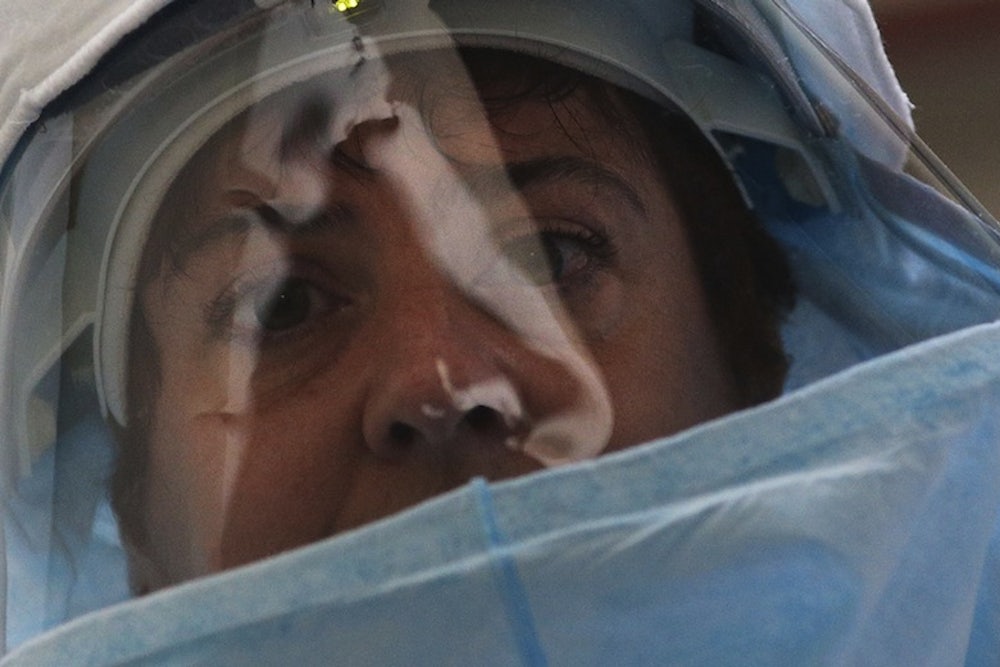There is no Ebola outbreak in the U.S., but we're seeing a predictable media frenzy to report one anyway. After all, the virus isn't easy to catch—it requires direct contact with a symptomatic patient's bodily fluids.
But there's no shortage of media speculation over suspected new cases, which is helping to feed the hysteria. Usually, this means a person with "Ebola-like symptoms," which look a lot like the flu, is being monitored by doctors until they can rule out the virus. There have been reports about a Yale University student who returned from Liberia and fell ill shortly after; one person in Los Angeles; three in Virginia; another in New York. None of these patients actually have Ebola. Every single case has turned up negative—except, of course, for the two confirmed cases of nurses who had direct contact with an Ebola patient at his most contagious. Here is one example of an (incorrect) chyron in a report about a suspected case in Washington, D.C.:

Fortunately, the Associated Press is working to avoid enabling panic. It has issued new guidelines on reporting Ebola in a thoughtful, responsible manner:
We’re increasingly hearing reports of “suspected” cases of Ebola in the United States and Europe. The AP has exercised caution in reporting these cases and will continue to do so.Most of these suspected cases turn out to be negative. Our bureaus monitor them, but we have not been moving stories or imagery simply because a doctor suspects Ebola and routine precautions are taken while the patient is tested. To report such a case, we look for a solid source saying Ebola is suspected and some sense the case has caused serious disruption or reaction. Are buildings being closed and substantial numbers of people being evacuated or isolated? Is a plane being diverted? Is the suspected case closely related to another, confirmed Ebola case?
When we do report a suspected case, we will seek to keep our stories brief and in perspective.
Hopefully other news organizations will take this advice.
